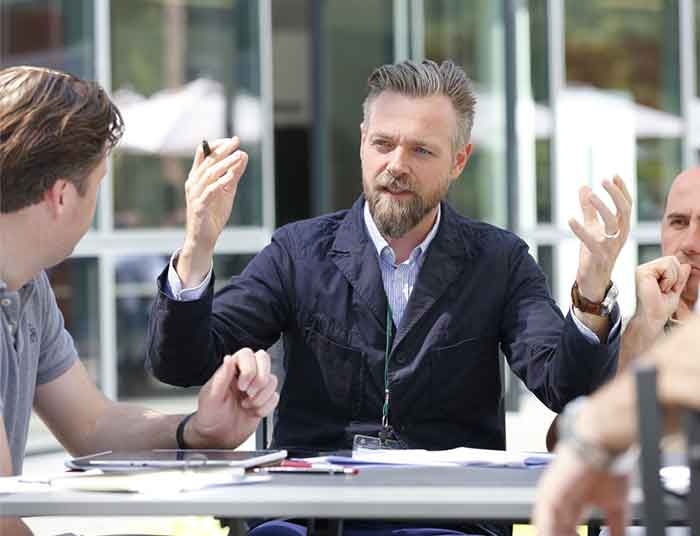Top Leadership Styles and Skills You Need to Become a Future-Proof Leader

‘My job is not to be easy on people. My job is to make them better.’ Steve Jobs put it rather succinctly when he said this, crisply phrasing in a couple of sentences his leadership philosophy. Coming from one of the world’s most successful innovators of the 20th-21st centuries, that seems like sound advice. A leader, as they say, leads from the front, which is why any kind of company, grouping or community of people is only as good as the person at the helm of it, driving people onward and upward, inspiring them to be the best version of themselves. But, are leadership skills inborn or can they be learned?
Top 5 Leadership Styles
Leaders are those who help develop leadership skills in their team members too. And there isn’t a hard-and-fast rule of leading that spells success, no single mantra that works across the board. The styles of leadership that have been adopted to corral their teams throughout history are varied. Be the leader you want to work for.
1. Authoritarian Leadership
2. Participative Leadership
3. Delegative Leadership
4. Transactional Leadership
5. Transformational Leadership
Learn more about these five types of leadership and how to develop the leader within you.
Top Leadership Skills
 What makes a leader, though? Are they born? Is it a learned skill? Which leads to the question, what exactly is leadership — a unidimensional concept? A dynamic, ever-changing way of being? All important questions but the most important thing to remember is that yes, leadership skills can certainly be learned and imbibed (but more on that in just a bit). Before we get to how a motivated individual can learn the skills to be effective stewards of companies, businesses, or people are multifaceted, it is important to first gain some insight into the different facets of being a leader.
What makes a leader, though? Are they born? Is it a learned skill? Which leads to the question, what exactly is leadership — a unidimensional concept? A dynamic, ever-changing way of being? All important questions but the most important thing to remember is that yes, leadership skills can certainly be learned and imbibed (but more on that in just a bit). Before we get to how a motivated individual can learn the skills to be effective stewards of companies, businesses, or people are multifaceted, it is important to first gain some insight into the different facets of being a leader.
“Micromanagement is a bad habit, not a leadership skill.”
While every person would certainly have their own way of leading, there are certain traits that are the bedrock of an individual’s leadership skills. Leading a team, project, or organization is not concentrated in a single skill set. In fact, it is a culmination of many different skill sets. An effective leader needs to have:
- Decisive: Possess the ability to be fearless and confident when it comes to decision-making
- Focused: Have a clear focus on the job at hand and a focus on the bigger picture
- Motivator: Bring out the best in their team and have the ability to know and cultivate the different skill sets of those who they lead
- Realistic: Have self-awareness when it comes to one’s own strengths and weaknesses
- Perceptive: Be open to accepting and implementing inputs from subordinates who make a valid contribution
- Forward-thinking: Always have an eye on the future of the industry and a finger on the pulse of current trends
What Makes a Leader Unique?
 Apart from the more obvious and quantifiable aspects that a leader should possess, there are certain soft leadership skills that are also significant contributors to successful and effective leadership. A leader is genuinely invested in the growth of his/her fellow team members. He/she inspires and motivates them to achieve their full potential, identifies their strengths and hones their talents to become strong independent-thinking leaders.
Apart from the more obvious and quantifiable aspects that a leader should possess, there are certain soft leadership skills that are also significant contributors to successful and effective leadership. A leader is genuinely invested in the growth of his/her fellow team members. He/she inspires and motivates them to achieve their full potential, identifies their strengths and hones their talents to become strong independent-thinking leaders.
These are all hallmarks of transformational good qualities of a leader. A person unafraid of change, who believes in the power of human endeavor and the importance of harnessing it along with providing direction is one capable of transforming people and businesses. Steve Jobs, a creative thinker and an intuitive leader who led by example was a transformational leader.
While these are broad categories that offer a framework to understand different leadership styles, they are by no means rigid classifications. In fact, leaders can change the way they lead throughout the lifetime of a company. While some core principles may certainly stay unchanged—confidence, decision-making ability, grasp of the knowledge of the specific field—others vary depending on the kind of role that the leader assumes, whether it is finance, strategizing, marketing, human resource development, etc.
Leadership Courses to Consider
Which brings us back to the question posited earlier — is leadership, then, something that can be taught? The answer is a definitive yes. Leadership skills, including executive presence, can be learned and many senior executives voluntarily seek Emeritus leadership programs to cultivate these skills. Some people may be natural born leaders. But, all leaders can learn.
The Wharton Management Development Program is an online leadership course that dives deep into the leadership skills learning process. With a comprehensive syllabus, this course focuses on imparting hard and soft skills aimed at cultivating effective communication skills. It also helps in building trust and the ability to make well-thought-out decisions. Moreover, this online program is geared toward senior business leaders to expand their skill sets or mid-level managers who want to scale the corporate ladder. It is also ideal for those from non-business backgrounds who find themselves in managerial positions.
In the digital age, the requirements for businesses to succeed are constantly evolving. Thus, strong interpersonal relationships and the dynamics between leaders (we say ‘leaders’ and not ‘bosses’) and their teams has taken on considerable significance. This, in turn, has led to reframing the kind of leadership needed to not just meet goals but inculcate a can-do spirit in every team member. A program, therefore, that hones your knowledge and equips you with the right skills, such as the Wharton Management Development Program, will ensure that leaders are on track for the future.
By Gauri Kelkar
Write to content@emeritus.org for content collaborations.
















